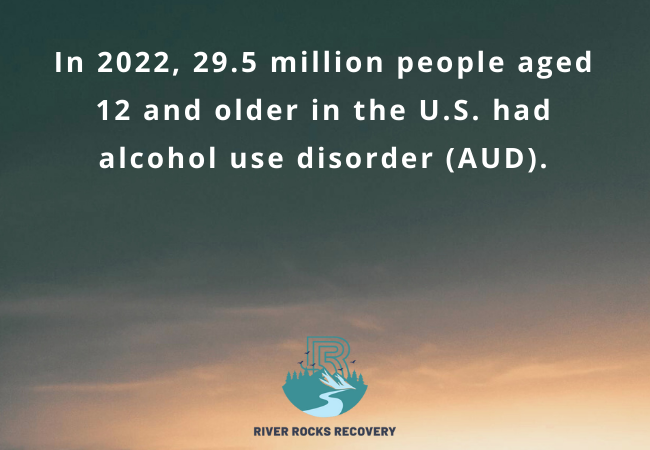Deciding to enter alcohol rehab is one of the most courageous choices a person can make. Whether it’s your first attempt at recovery or one of many, stepping into a structured environment dedicated to healing from alcohol use is a powerful way to regain control of your life. But for many, the unknowns of rehab can feel overwhelming. What happens on day one? How long does it last? Will you be treated with compassion, or judged for your past?
At River Rocks Recovery, we understand that the path to healing starts with clarity. When you know what to expect, fear begins to shrink—and hope begins to rise. This article will walk you through the stages of alcohol rehab, explain the therapeutic structure, and help you understand the support system that’s in place every step of the way.
The First Step: Admission and Assessment
Every effective alcohol rehab program begins with a comprehensive assessment. This is a critical step in tailoring treatment to your unique needs. When you arrive at a facility like River Rocks Recovery, you’ll meet with a team of licensed professionals who will take the time to understand your background, substance use history, physical health, mental health status, and personal goals.
This process is not about judgment—it’s about building a foundation. Understanding the full scope of your experience allows the clinical team to design a treatment plan that actually works. Whether you’re entering a Partial Hospitalization Program in Middletown, Ohio or preparing for a lower level of care, this initial evaluation determines your starting point.
Assessments typically include a physical exam, mental health screening, substance use timeline, and any immediate medical needs. Based on the results, your care team may recommend detox (if necessary), identify co-occurring disorders, and begin planning your therapeutic journey.
Structure and Support: Daily Life in Rehab
Rehab isn’t just a place—it’s a structured environment built to remove chaos and build consistency. Each day follows a schedule that blends clinical therapies with personal time, healthy meals, and opportunities for reflection.
Most alcohol rehab programs include:
-
Individual therapy sessions with a licensed counselor
-
Group therapy where clients process shared experiences and develop communication skills
-
Family therapy, often included later in treatment, to repair damaged relationships and establish healthy dynamics
-
Psychoeducation groups that teach about addiction, relapse prevention, and coping skills
-
Experiential therapies such as art, mindfulness, or physical movement
-
Case management, where clients receive help with employment, legal issues, or aftercare planning
A high-quality Addiction Treatment Program in Middletown, Ohio focuses not just on abstinence, but on reshaping how you live. That means learning new tools to manage stress, navigate relationships, and approach challenges in healthier ways.
Clients are typically expected to participate in all scheduled activities unless medically excused. This routine is designed to create a rhythm—stability that many people haven’t experienced in years.
Medical and Psychiatric Support
Alcohol addiction affects both the body and mind. Many people entering rehab are dealing with withdrawal symptoms, nutritional deficiencies, or co-occurring mental health conditions like anxiety, depression, or trauma-related disorders.
To address this, rehab programs often include access to medical staff and psychiatric care. In some cases, medications may be prescribed to manage withdrawal or stabilize mood. If you’re enrolled in an Intensive Outpatient Program in Middletown, Ohio, you might attend medical check-ins several times per week in addition to therapy.
The goal is to treat the full spectrum of your experience. No one heals by focusing only on one piece of the puzzle. Medical staff will monitor your progress, adjust medications if needed, and coordinate with therapists to ensure a seamless treatment experience.
Building a Recovery Toolkit
One of the key aspects of rehab is the development of a recovery toolkit—a set of personalized strategies and practices that help you stay sober long after you leave treatment. This process involves exploring what triggers your cravings, identifying the beliefs and patterns that keep you stuck, and learning how to intervene in those moments with healthier responses.
Cognitive-Behavioral Therapy (CBT) is a staple of many rehab programs, as it helps clients recognize the connection between thoughts, emotions, and behaviors. You may also experience Dialectical Behavior Therapy (DBT), which teaches emotional regulation and interpersonal effectiveness.
Clients in an Outpatient Treatment Program in Middletown, Ohio will often focus on integrating these skills into their everyday environments. For some, that means applying tools at work or with family; for others, it means learning to enjoy sober recreation for the first time in years.
Rehab doesn’t give you a perfect life—it gives you the tools to handle life on life’s terms, without alcohol as your coping mechanism.
Community and Connection
Isolation is one of the most common side effects of alcohol addiction. Many people entering treatment have strained relationships, damaged trust, and a sense of loneliness that runs deep. Rehab is often the first place where someone feels truly seen again—not as an addict, but as a person who matters.
Group therapy and peer support play a massive role in this process. Sharing your story and hearing others’ stories reminds you that you are not alone. The bonds formed in group settings can become lifelong sources of accountability and encouragement.
This is especially true in a community-based setting like River Rocks Recovery, where treatment fosters connection from the beginning. In fact, many clients find their strongest source of motivation through the group environment, knowing that others are walking the same road with them.
Transitioning from Rehab to Real Life
The goal of any rehab program is not just to get you sober—it’s to help you stay sober in the real world. That’s why discharge planning is built into the treatment experience from the beginning. Your team will work with you to create an aftercare plan that may include continued therapy, 12-step or SMART Recovery meetings, alumni support, and transitional housing.
Many individuals continue their journey through a Partial Hospitalization Program in Middletown, Ohio or step down to outpatient care after completing residential rehab. This gradual transition helps prevent the shock of returning to daily life too quickly. It allows you to maintain accountability while adjusting to a new routine.
Returning to work, reconnecting with family, and navigating social environments can all be challenging after treatment. A robust aftercare plan bridges that gap and helps you stay grounded.
Why Choose River Rocks Recovery
At River Rocks Recovery, we don’t just help people quit drinking—we help them rediscover who they are without alcohol. Our programs are trauma-informed, evidence-based, and personalized to each individual’s unique journey. Whether you need medical support, mental health care, or long-term sobriety planning, our team meets you with compassion and clarity.
When you step into our Addiction Treatment Center Middletown, Ohio, you’re not stepping into a hospital—you’re stepping into a place of transformation. A place where your voice is heard, your pain is validated, and your hope is restored. We believe in walking beside you, not ahead of you. And we’re honored to help you take the first step toward freedom.
Conclusion
Entering an Alcohol Rehab Treatment in Middletown, Ohio is not just about getting sober—it’s about rebuilding the life alcohol took from you. It’s about restoring your health, reconnecting with the people you love, and rediscovering the joy that exists in a life without addiction.
Recovery isn’t a straight line, and it’s not always easy. But with the right support, tools, and community, it is absolutely possible.
If you or a loved one is struggling with alcohol use, River Rocks Recovery is here to help. Call us today at (888) 905-6281 to learn more about how we can walk this journey together. You don’t have to face this alone. Healing starts now.
Frequently Asked Questions (FAQs)
How long does an alcohol rehab program typically last?
Alcohol rehab programs vary in length based on individual needs, but most range from 30 to 90 days. Some clients may transition into outpatient or aftercare support after completing inpatient treatment.
Will I have access to medical and mental health professionals during rehab?
Yes, most quality rehab centers offer comprehensive care that includes licensed medical staff, therapists, and psychiatric support for co-occurring mental health conditions.
Can I keep my job while attending alcohol rehab?
Many people choose outpatient or intensive outpatient programs to continue working while receiving care. Residential treatment may require time off, but legal protections like FMLA may apply.
What happens after I finish the rehab program?
After completing rehab, a discharge plan is created to support your recovery. This may include ongoing therapy, support groups, sober living, or outpatient services.
Will I be able to stay in contact with my family during treatment?
Most programs encourage healthy family involvement through scheduled calls or family therapy sessions. However, early stages of rehab may limit contact to support focus on recovery.





























